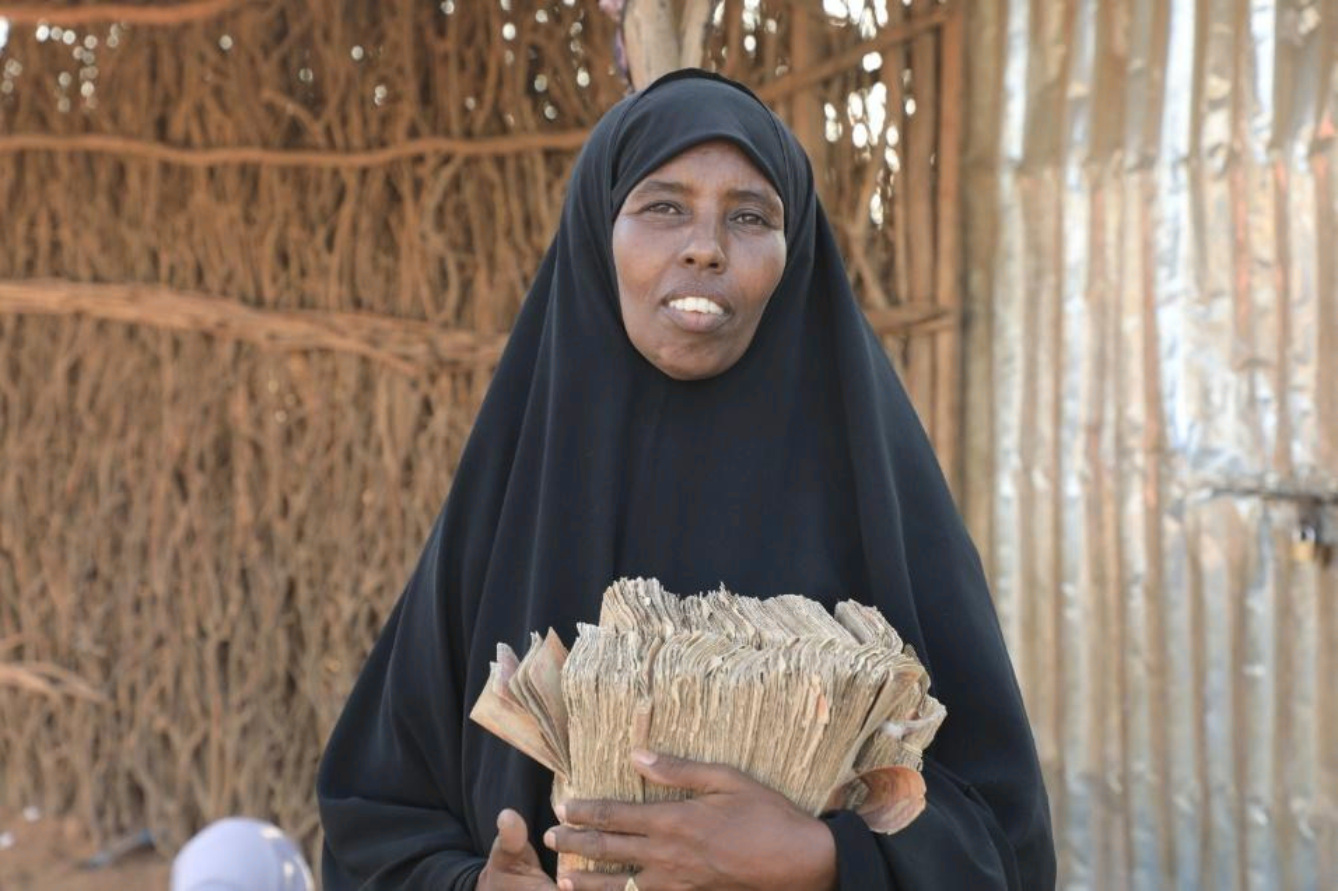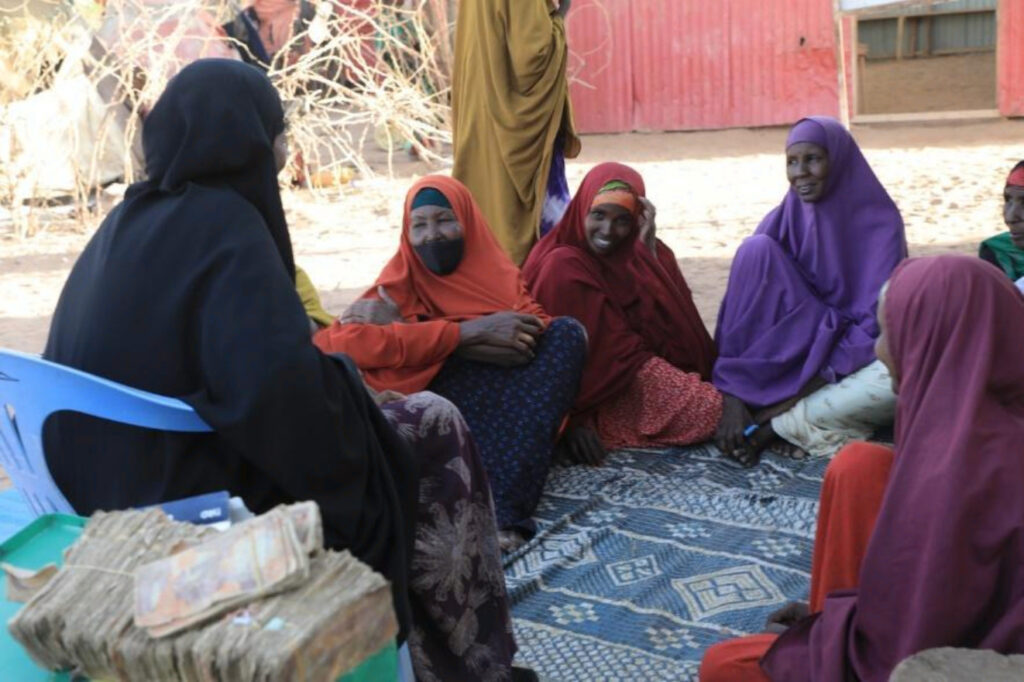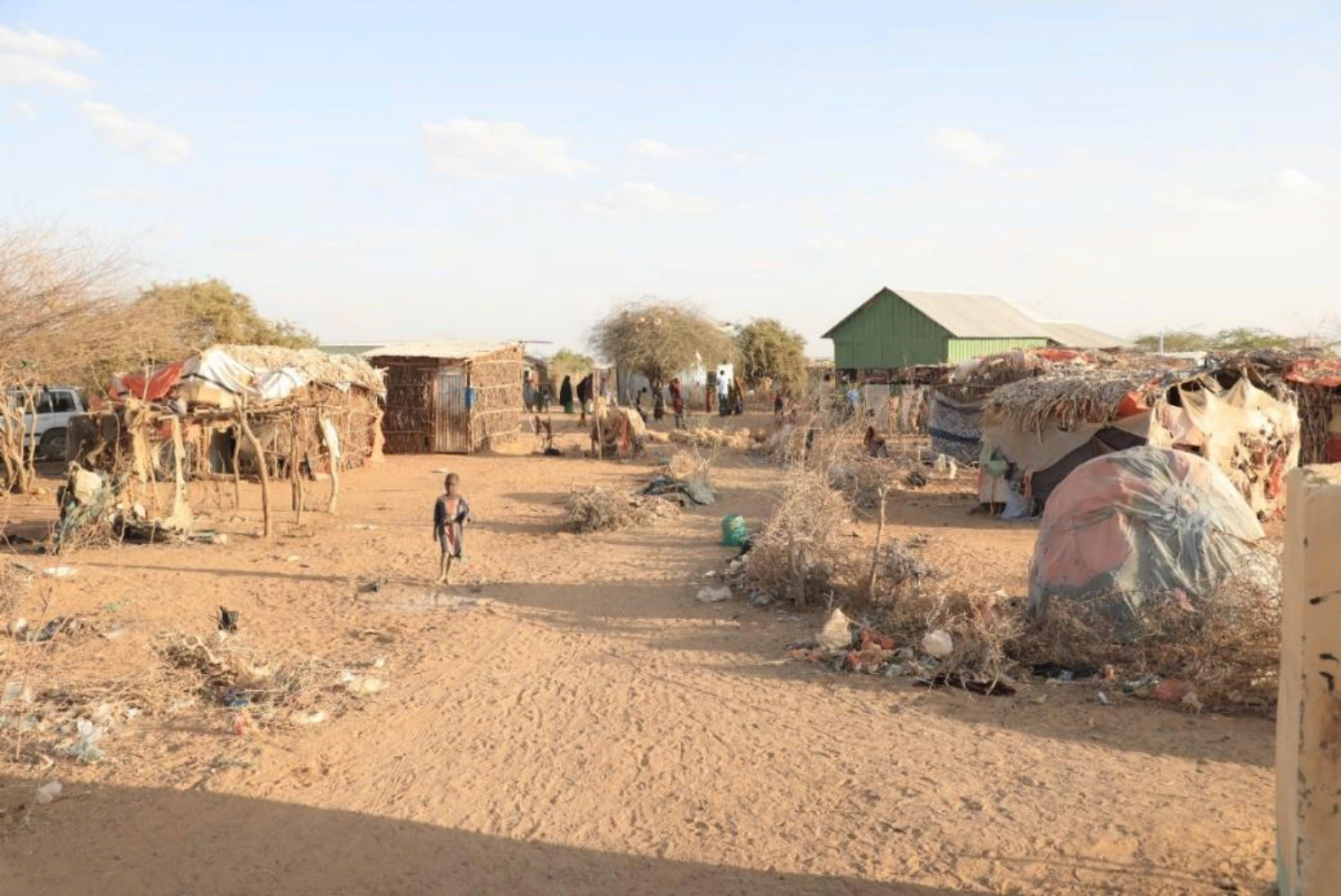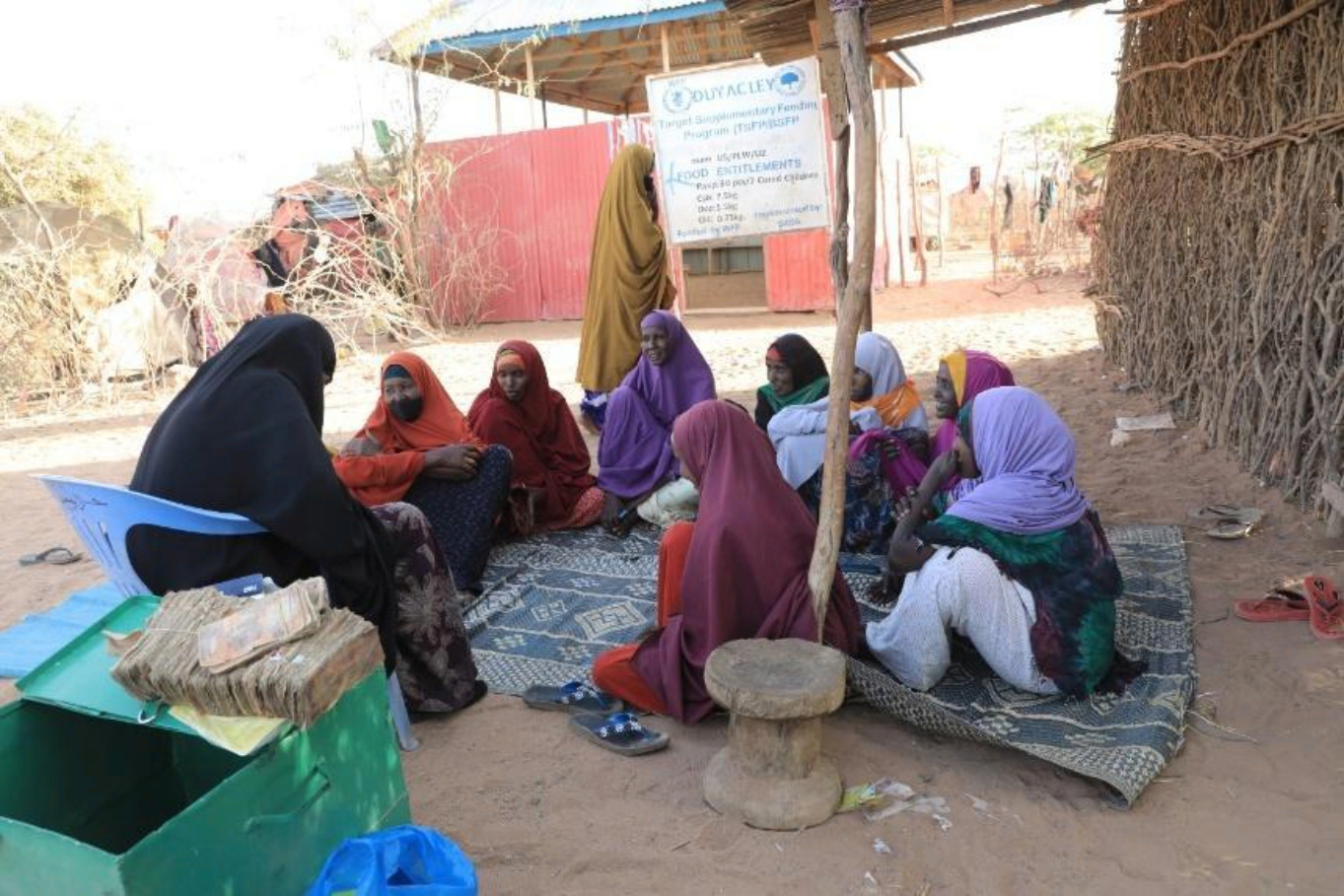Building resilience through Village Savings and Loaning Associations

Multiple shocks and decades of conflict have left families in Somalia in need of urgent support. As the drought worsen across the country, women, children, and Internally Displaced Persons (IDPs) remain the most vulnerable groups. The impact of the prolonged drought has increased the cost of living, which is straining already limited household resources. For many IDP women, the village savings and loans association (VSLA), a self-managed and self- capitalized micro-finance methodology, has cushioned them and their families from different shocks and enabled them to support their neighbours and friends in difficult times.
“Recently, one of our members lost a relative and we came together to support her to meet the funeral expenses. This is how helpful the project is” said Osobo.

“In the first cycle, the ten groups managed to save up to USD 8,600, and have saved more than USD 3,000 in the second cycle,” said Hussein Mohamed, CeRID’s Project Officer.
“I took a loan of USD 125, out of which USD 100 came from the revolving fund as financial boost to the group and USD 25 from the group saving. I invested in livestock trading. Every month I bought 40-50 goats and sheep and resold them at a profit. Thanks to this initiative, my life is improving, and I have become economically empowered”.
“I am grateful for joining the Halgan saving women group, I can now trade my livestock at the local livestock market,” she adds with a big smile on her face.

Four years ago, 36-year-old Osobo was living in Dabley village, which neighbours Garbaharey district in Gedo region. Due to the recurring drought, Osobo and her family, like many other pastoralist families, lost their livestock and were forced to move to Dhuyacley IDP camp in Luuq district. They had to rebuild their lives from the ground up. Many IDP households face a steady depletion of assets, as well as limited access to financial resources and livelihood opportunities. Osobo’s case was no different: with no stable income, putting food on the table for her family was a real struggle.
Osobo was among the beneficiaries of the project ‘‘Improving food security for vulnerable IDP and host communities in Luuq District.’’ She received training on sound agricultural practice and was provided with farm inputs and livelihood support. She was also introduced to VSLA methodology and decided to join the Halgan saving group at Duyacley IDP camp. She started making monthly contributions of USD 4 the following month. Through the project, the VSLA groups consisting of 200 members in total received a financial boost, as well as training on how to run VSLA, manage their finances, and operate their small businesses. Halgan group saved USD 1,104 in the first cycle and is currently at USD 400 in the second cycle.

“This initiative came at the right time. I had no assets or income that would have allowed me to start the livestock trading business. I started with two goats that I received as livelihood assets from this project. And I believe many women like me are today accomplishing great things as a result of such initiatives”, said Osobo.
Osobo also took up leadership within the Halgan women group upon its formation and her leadership skills have improved as a result; her husband is pleased with her progress and encourages her to keep up her work zeal. As Osobo and other women in the IDP camps in Luuq continue to enjoy the fruits of this unique project, the managers who support the initiative hope that the same would be replicated elsewhere to put more women at the centre of economic activities.
“I don’t know what I would have done without this scheme. Some women were in worse financial situations than me, and we are all grateful that we can now positively turn our lives around because of this project,” says Osobo
“Every time we empower a woman economically, we support her entire family. This is because women tend to support their families with every shilling they make. We believe that putting women at the centre of economic empowerment projects will help raise future generations and this will change a lot in Somalia,” said Hussein Mohamed, Project Officer for CeRID.
